Juggling solutions, experts is all in a day's work for sustainability grad
View Source | July 8, 2013
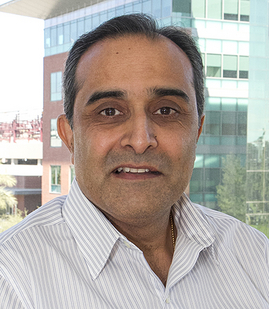 Rajesh Buch, a practice lead with Sustainability Solutions Extension Service under the Rob and Melani Walton Sustainability Solutions Initiatives, graduated from the School of Sustainability last year. He is now applying his background in mechanical engineering, energy systems, and business in the Extension Service, a unique consulting group that pairs student analysts with faculty members who guide sustainability projects.
Rajesh Buch, a practice lead with Sustainability Solutions Extension Service under the Rob and Melani Walton Sustainability Solutions Initiatives, graduated from the School of Sustainability last year. He is now applying his background in mechanical engineering, energy systems, and business in the Extension Service, a unique consulting group that pairs student analysts with faculty members who guide sustainability projects.
As a practice lead, Buch organizes the student groups and collaborates with the faculty to implement projects such as greenhouse gas inventories, waste recycling programs, and biofuel evaluations.
"Sustainability is a way to correct our way of developing," he says. "We can start by taking baby steps. I contribute by assisting those private and public organizations that are willing to recognize the importance of sustainability."


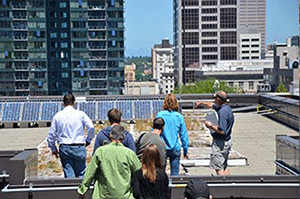

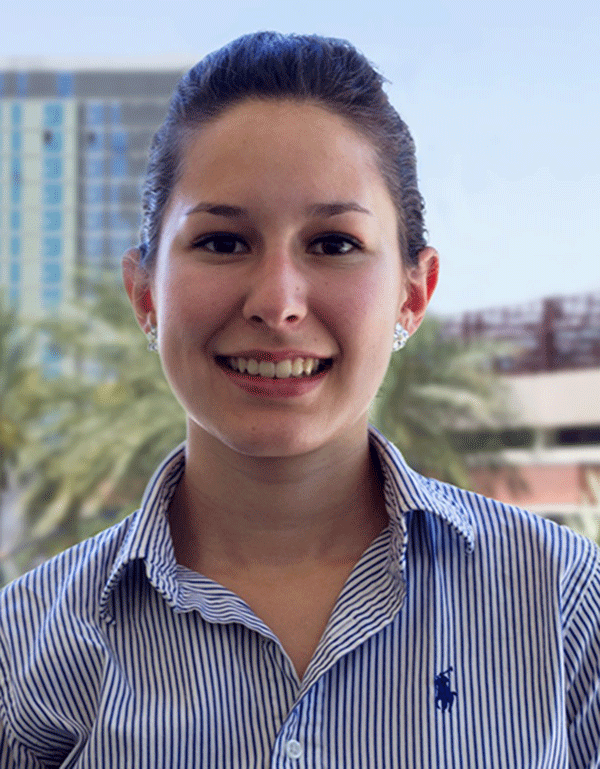 Clean Air Cab, a local sustainable taxi cab company, has awarded two School of Sustainability students with scholarships to fund their education in the upcoming year. Incoming freshman Maria Eller plans to study diversity and sustainability while senior Sean Martin plans to explore sustainable consulting.
Clean Air Cab, a local sustainable taxi cab company, has awarded two School of Sustainability students with scholarships to fund their education in the upcoming year. Incoming freshman Maria Eller plans to study diversity and sustainability while senior Sean Martin plans to explore sustainable consulting.
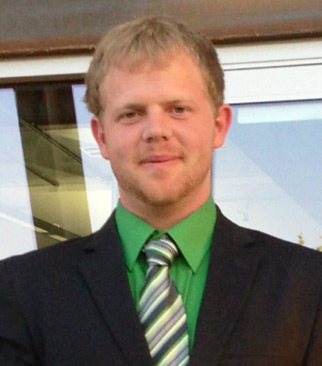 Bradley Baker graduated from the School of Sustainability in 2012. Now, he works as a hazardous waste compliance officer at the Arizona Department of Environmental Quality (ADEQ) Waste Programs Division. He learned at a young age that our resources are finite, and taking care of them takes personal and group responsibility.
Bradley Baker graduated from the School of Sustainability in 2012. Now, he works as a hazardous waste compliance officer at the Arizona Department of Environmental Quality (ADEQ) Waste Programs Division. He learned at a young age that our resources are finite, and taking care of them takes personal and group responsibility.

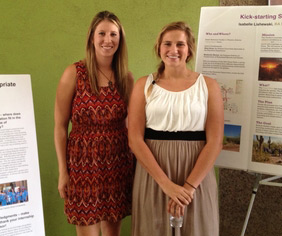 Arizona State University's School of Sustainability hosted its year-end open house and project showcase on April 24 where students and faculty got to show off their innovative course assignments and partnerships. For example, students in Professor David Manuel-Navarrete's Sustainability Leadership and Social Change course introduced their video highlighting ASU's transformation towards university-wide sustainability.
Arizona State University's School of Sustainability hosted its year-end open house and project showcase on April 24 where students and faculty got to show off their innovative course assignments and partnerships. For example, students in Professor David Manuel-Navarrete's Sustainability Leadership and Social Change course introduced their video highlighting ASU's transformation towards university-wide sustainability.
 Arizona State University’s School of Sustainability Alumni Chapter won first place in the Sparky’s Membership Mania Competition for the second consecutive year. This competition provides a $500 cash award to the ASU Alumni Chapter with the largest increase in membership each year. Thank you to the many School of Sustainability graduates who have joined the School of Sustainability Alumni Chapter. We appreciate your talents, expertise, and connection to your alma mater! Pictured left to right: Alissa Pierson (ASU Alumni Association), Brigitte Bavousett (School of Sustainability Alumni Chapter President), Dr. Christine Wilkinson (ASU Alumni Association).
Arizona State University’s School of Sustainability Alumni Chapter won first place in the Sparky’s Membership Mania Competition for the second consecutive year. This competition provides a $500 cash award to the ASU Alumni Chapter with the largest increase in membership each year. Thank you to the many School of Sustainability graduates who have joined the School of Sustainability Alumni Chapter. We appreciate your talents, expertise, and connection to your alma mater! Pictured left to right: Alissa Pierson (ASU Alumni Association), Brigitte Bavousett (School of Sustainability Alumni Chapter President), Dr. Christine Wilkinson (ASU Alumni Association).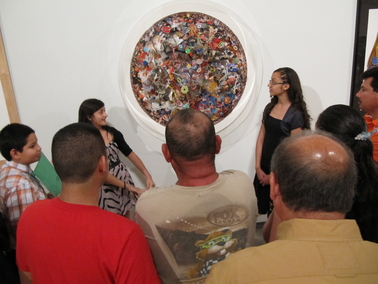 Omaya Ahmad, a fellow with Arizona State University’s
Omaya Ahmad, a fellow with Arizona State University’s 


 Outstanding graduate and Fulbright winner Jill Brumand is an honors student and a double major in sustainability and geography. She started her academic career at Arizona State University in 2009 and will begin her graduate career as a Fulbright master's student at Lancaster University in Northwest England.
Outstanding graduate and Fulbright winner Jill Brumand is an honors student and a double major in sustainability and geography. She started her academic career at Arizona State University in 2009 and will begin her graduate career as a Fulbright master's student at Lancaster University in Northwest England.
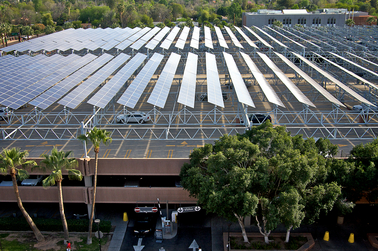 For the fifth consecutive year, Arizona State University made The Princeton Review's "Green Honor Roll," a list that includes universities across the nation that promote sustainability in education, practices, and partnerships.
For the fifth consecutive year, Arizona State University made The Princeton Review's "Green Honor Roll," a list that includes universities across the nation that promote sustainability in education, practices, and partnerships.
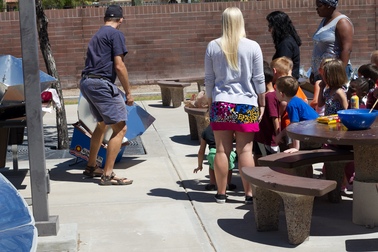 As part of Arizona State University’s
As part of Arizona State University’s 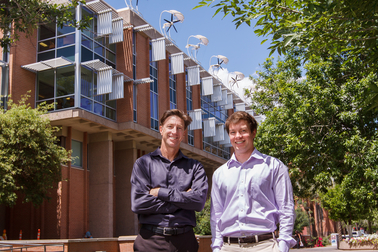 A recent School of Sustainability alum, Andrew Krause, and his mentor, Sustainability Scientist George Basile, and two former classmates have launched the website,
A recent School of Sustainability alum, Andrew Krause, and his mentor, Sustainability Scientist George Basile, and two former classmates have launched the website, 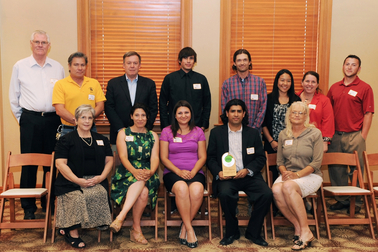 For their demonstrated excellence in fostering the successful development, implementation and promotion of sustainability, three programs at ASU were awarded the President's Award for Sustainability:
For their demonstrated excellence in fostering the successful development, implementation and promotion of sustainability, three programs at ASU were awarded the President's Award for Sustainability:


